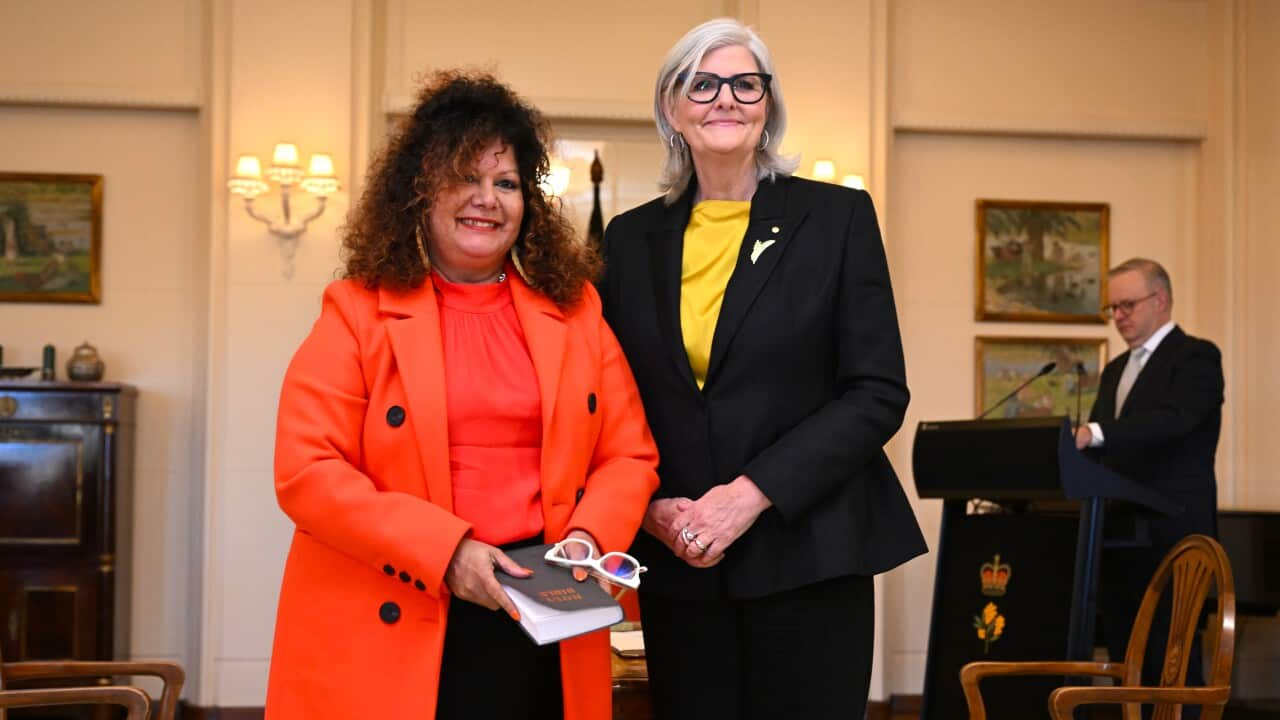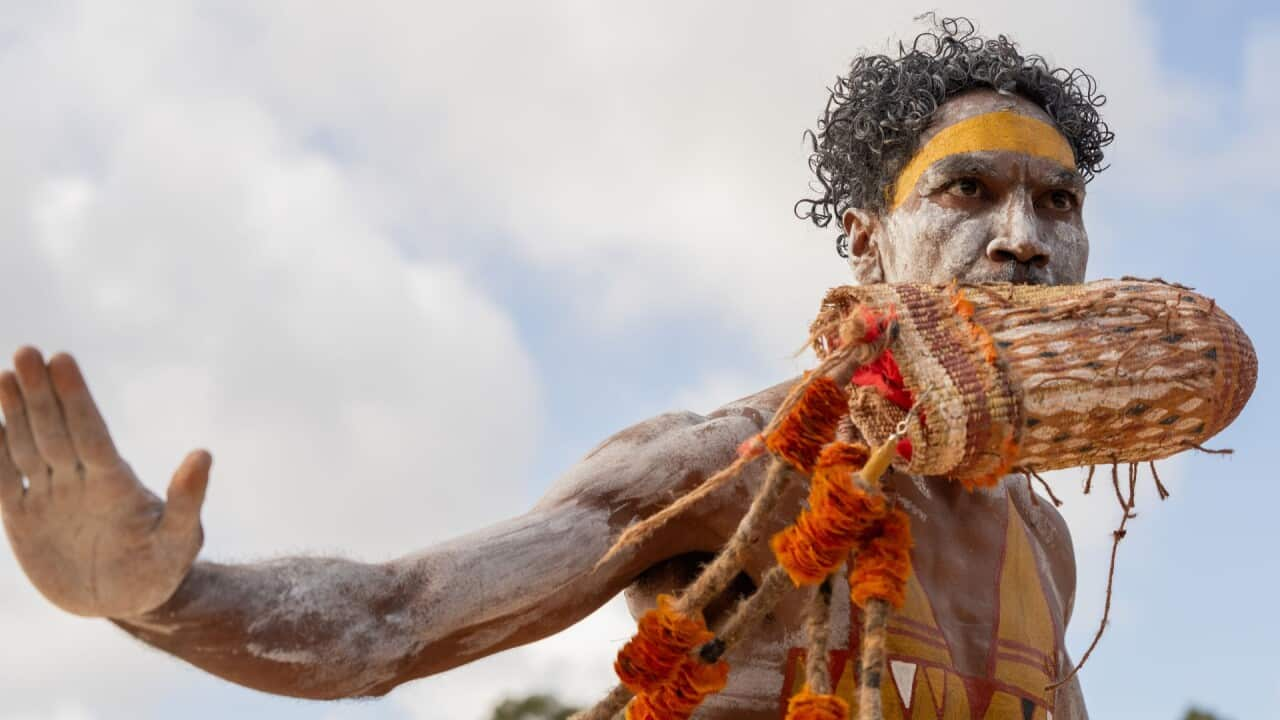The first Garma festival to be held in the wake of the Voice referendum's defeat has kicked off in Arnhem Land.
The four-day celebration of Yolŋu culture is also the biggest political event on the First Nations calendar, a chance for Aboriginal and Torres Strait Islanders from around the continent to meet and discuss common goals.
Prime Minister Anthony Albanese and newly appointed Indigenous Affairs minister Malarndirri McCarthy will arrive on Friday in time for panels and keynote addresses, but one political figure not expected to show is Peter Dutton.
Despite a history of bipartisanship, this year's festival is the first in years expected to have no representation from the Coalition.
Djawa Yunupingu, chair of the Yothu Yindu Foundation, which hosts Garma, expressed disappointment in the absence.
"Of course, I'd be happy to see both the prime minister and the leader of the opposition [at Garma]," he told NITV.
"I wrote to the Leader of the Opposition a week ago. He hasn’t replied to me, I haven’t heard from him since. I wonder why?"
Mr Dutton travelled to Israel this week in a show of support for prime minister Benjamin Netanyahu, but despite his expected return by the weekend, his office has made no indication he would attend.
It follows criticisms he made of last year's festival as a “love-in [for] the yes advocates and proponents”, after the Yothu Yindi Foundation threw its full support behind the proposition for a First Nations Voice to Parliament.
Even in the midst of that acrimonious debate, Julian Leeser, the former opposition spokesperson for Indigenous Affairs, attended Garma.
Mr Dutton, defending his decision not to attend the 2023 festival, pointed instead to two visits he had made to Arnhem Land that year.
Mr Yunupingu dismissed the opposition leader's connection with the area and its people.
"I don't think he's in the hearts of Yolngu people anyway," he said.
Despite her presence in the nearby Arnhem community of Maningrida, the Shadow Minister for Indigenous Australians, Jacinta Nampijinpa Price, was not intending to travel to be part of the festival, her office confirmed.
The Warlpiri woman has been similarly critical of the festival as Mr Dutton.
Forging a path forward following referendum's defeat

Djawa Yunupingu expressed his hopes for the festival to NITV's Michael Rennie.
Mr Yunupingu, of the Gumatj clan, said he was proud of the festival's growth.
"Each year progresses we build more and more … and make it better," he said.
More than 3000 people will soak up the art, music, traditions of the Yolngu, and hear ideas from Blak luminaries from across the continent.
Advocates of the Uluru Statement, like Mr Yunupingu, are hoping to regroup in the wake of the Voice's rejection at referendum last October.
"Australia had a vote, and it didn’t go our way," he said.
"We just don’t want to look back to what happened last year. We’re always looking to the future."
The prime minister's keynote address on Saturday will be a highly anticipated indication of the government's intentions for post-referendum policy.
The last time Mr Albanese addressed Garma, his embrace of the Voice to Parliament was on full display, as he exhorted the country to support the proposal.
In contrast, his address this year is expected to have a focus on education policy.
Closing the Gap failures cast a shadow
A new productivity commission report released ahead of Garma revealed only 5 of the 19 measures to Close the Gap are on track.
The new Indigenous Australians minister Malarndirri McCarthy told reporters she would be “reaching across the parliamentary divide to ensure there are some certain areas of Aboriginal Affairs where we should be untouched in terms of it being a political football”.
Senator Price said the lack of progress was an indicator of the need for a “generational shift” to close the gap.
She’s called for an audit of the measures.
“I look forward to hearing from Malarndirri McCarthy and working with her where there is common ground,” Senator Price said.











